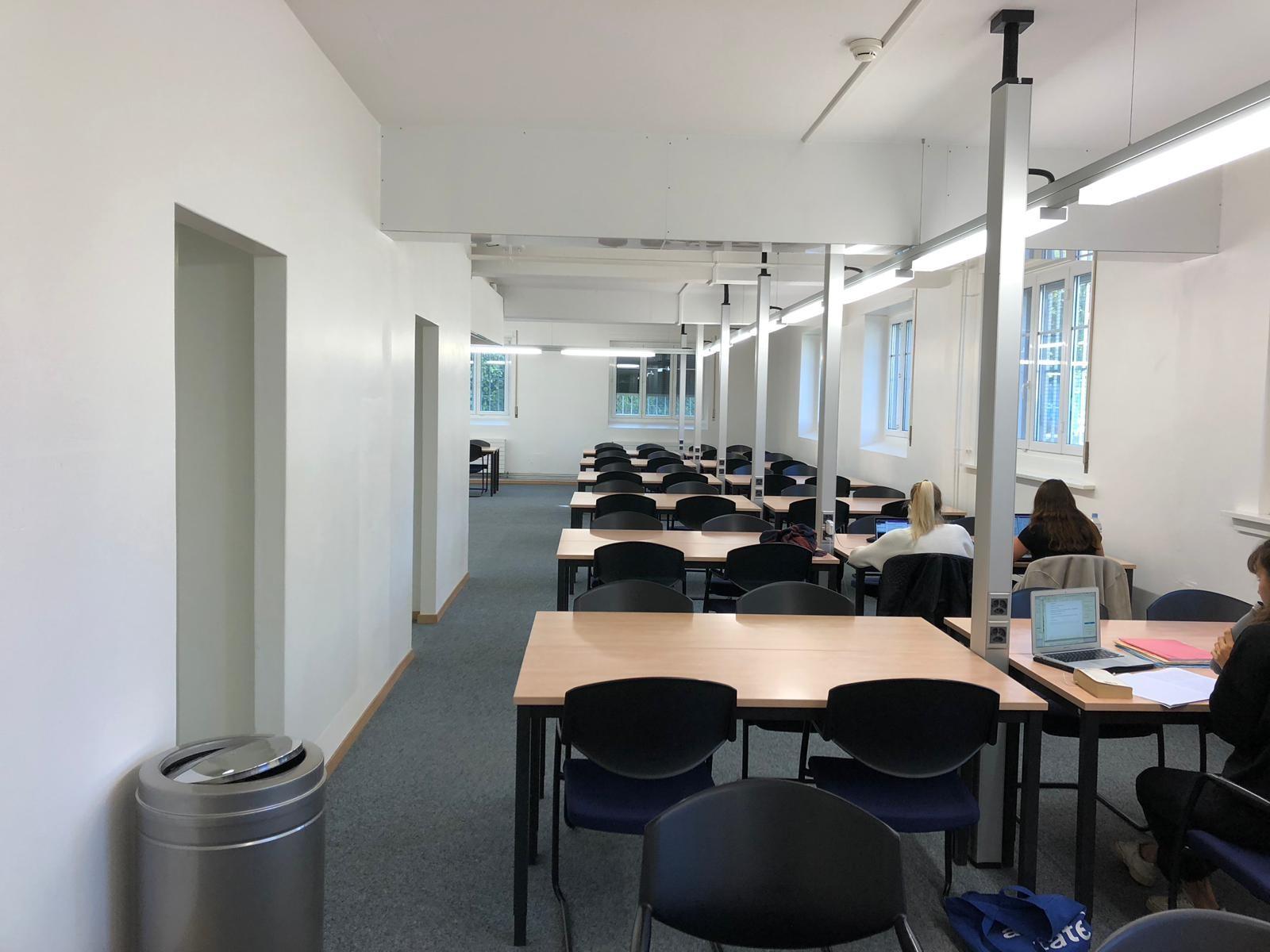How great is the student experience at a Swiss university?

Can Swiss universities offer the kind of support and vibrant student life that attracts many to the US and UK?
A good student experience begins with a warm welcome. New university arrivals in Switzerland get support when it comes to practical issues. Typically, the days preceding the start of the academic year are considered orientation days, a time when new students get a crash course in navigating life both off- and on-campus. Students can expect valuable assistance, such as a tour of campus, tips on learning strategies, or a run-down of the various administrative, social and cultural services available to them.
Orientation programs for international students at UK universities also help provide basic information about life at the university, finding your way around, and such useful things like opening a bank account.
In the US, new students, especially international students, are not expected to have a strong support system in place, so universities will often have programs and resources to help students succeed. The University of ArizonaExternal link, like many schools, offers links to help with immigration questions, taxes, and academic advising.
Advice and support
Help with academic and future work matters in Switzerland is usually at hand in the form of advisors, often connected to the field of study or faculty, and a careers office that can help students flesh out career paths and goals or even find a part-time job during their studiesExternal link. Facilities like the University of Bern’s Welcome CentreExternal link or the University of Fribourg’s Uni-InfoExternal link are staffed with advisors who are available for consultations and workshops throughout the year on various aspects of life at university and beyond.

More
University studies: Switzerland vs India
For personal issues, such as psychological support, some campuses have professionals on-site while others have support services that refer students to off-campus counsellors.
Like many universities, Bern also offers language classesExternal link – some of them free of charge – for those interested in picking up the local language (German in this case). Or students can opt for “tandem” sessions, a more informal way of polishing up basic foreign language skills with a partner, as they do in FribourgExternal link.
Those students arriving in Switzerland with a young family may be pleased to know that universities cater well to their needs, especially when it comes to child care. Many institutionsExternal link have on-campus daycare centres and kindergarten classes. Part-time studies are possible, and in some cases parents can also apply for financial support or request a break in their studies to take care of a child. University advisors can help students to uncover and access all of these different possibilities.
In the UK, health and welfare services are in place at all British universities and are free for all, as they are covered by the National Health Service (NHS). Whether in need of medical treatment, mental healthcare, disability advice, or counselling, all British universities will offer these basic services to some degree.
In the US too, student health centres provide things like flu shots and basic medical care right on campus, and often provide online resourcesExternal link for common ills. Some universities also provide outreach for psychological or emotional support. Montclair State University organizes its list of servicesExternal link by how a student may be feeling. By clicking “I feel alone” a student is paired with a link to campus clubs, places of worship, and even a suicide prevention resource. Students can also find help in writing labs to get feedback on assignments, or math labs for help on math, for example. Help is often just a click, call, or walk away.
Recreational offerings
In the UK, no matter what university you attend, it is likely to have a well-developed history and culture of student organisations and societies. These may be affiliated to one’s studies, but for the most part they exist for recreational purposes and often come to dominate a student’s social life.

More
Why ‘happy’ is boring
There is a wide selection of societies from which to choose from, encompassing theatre companies, choirs, political groups, journalism and much, much more. The culture of student societies is so generally well-developed and so highly regarded in the UK that people see it as a springboard to a career, especially in the arts; both Mr Bean and Dr House have their roots in student theatre productions.
Sports is arguably the largest contingent of student societies. Some universitiesExternal link, like Bath, Exeter, and Loughborough, have built extensive sporting facilities and arranged courses around training schedules to attract those students who wish to practice their sport alongside their studies. Gym memberships are either offered free of charge or at a discount at most universities.
In the US, tuition fees sometimes covers a membership at a fitness centre, and the ability to participate in university recreational activities. This can range from a full gym and pool, to outdoor expeditions or even glow stick yoga classes, as advertised by the University of North CarolinaExternal link. Because students are already paying for this in their mandatory fees, it might be worth checking out what options may appealExternal link to them. Students also often organize into specialized clubs, and can put on cultural literary readings, festivals, or just low-key meet-ups. Student advisers, and the international liaison office can probably point students to details.
Despite Switzerland’s reputation for being dull, students in Switzerland also have plenty of options when they need a break from studies. They are bound to find a range of associations and facilities on campus to suit various extra-curricular interests, from choirs and orchestras to dance workshops and writing clubs. Student unions might organise social events like an apéritif or even offer free tickets to cultural events off-campus. Those with wanderlust enrolled at the University of Fribourg can take advantage of reduced prices on railway day passesExternal link to explore other parts of the country. And for the athletic types there are usually gym facilities and a range of team sports to choose from: the ETHZ alone offersExternal link over 100 different sports and close to 1,200 sports classes and camps each year.
Next in the series we tackle subject strengths: What disciplines are Swiss, US, UK universities best at?
Tony Ganzer is an American journalist based in Cleveland, Ohio who lived and worked in Switzerland for many years. He will help examine the American university system for this series.
Geraldine Wong Sak Hoi, a Canadian journalist based in Switzerland, will report on the Swiss university system for this series. She is also involved in fact-checking projects for swissinfo.ch.
Leo Shearmur is a postgraduate student at the University of Oxford and has lived and studied in the UK and Switzerland. He will report on the British educational system of this series.

In compliance with the JTI standards
More: SWI swissinfo.ch certified by the Journalism Trust Initiative







You can find an overview of ongoing debates with our journalists here . Please join us!
If you want to start a conversation about a topic raised in this article or want to report factual errors, email us at english@swissinfo.ch.